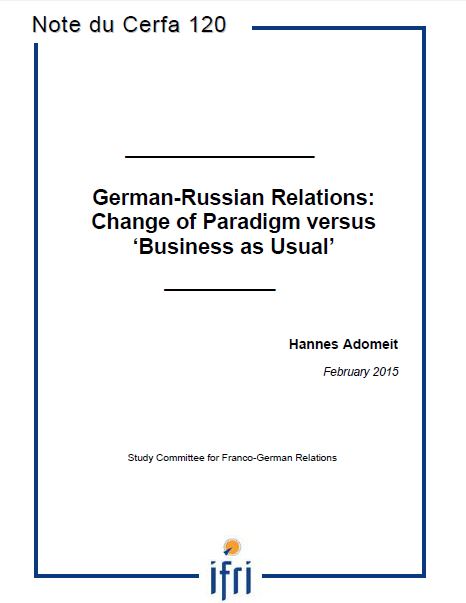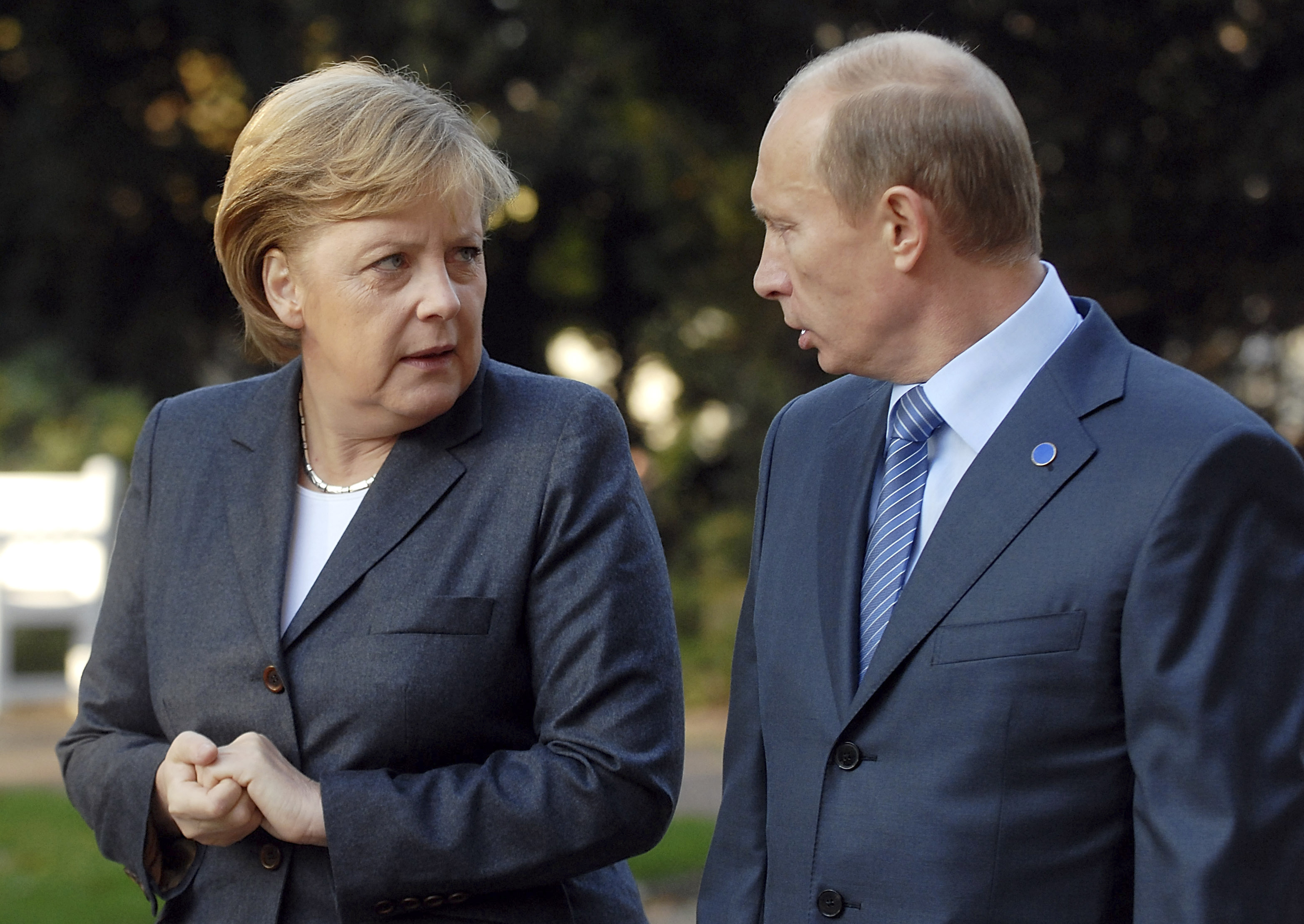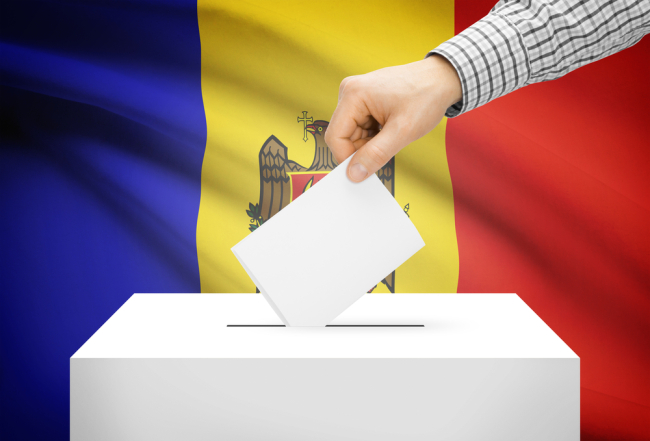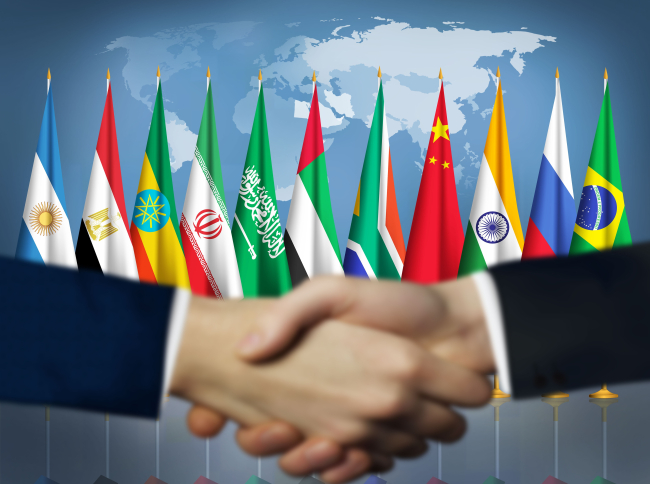German-Russian Relations: Change of Paradigm versus 'Business as Usual'

In 2014, Germany’s relations with Russia markedly deteriorated. The decline was precipitous but it did not occur suddenly. It began some time before Moscow’s annexation of Crimea in March 2014 and the Kremlin’s support for separatism and thinly concealed military intervention in eastern Ukraine.

In the period from the collapse of the Soviet Union in 1992 through Gerhard Schröder’s chancellorship (1998–2005), Germany was Russia’s privileged partner in Europe. In that sense, Berlin had a ‘special relationship’ with Moscow, officially labelled ‘strategic partnership’. Such patterns of the past raise the question whether the current crisis in German-Russian relations is merely a temporary phenomenon, a downturn that will again be replaced almost literally by ‘business as usual’, or if the present deterioration of relations is to be regarded as a change of paradigm that encompasses all dimensions of policy and is likely to persist for the foreseeable future?
This Note du Cerfa attempts to answer this question. In doing so, it will first focus on changes of perception and paradigm on six different levels, that are decisive for the formulation of Germany’s policy vis-à-vis Russia. These include: (1) the effects of Putin’s new domestic and foreign course; (2) the position of the German Green party on the government’s Russia policy; (3) shifts in SPD perceptions of Russia; (4) the consensus of the CDU/CSU-SPD coalition government vis-à-vis Russia; (5) the importance of Russia for German industry and commerce and Germany’s dependency on Russian gas; (6) the public opinion vis-à-vis Russia.
Second, the analysis will look at the conclusions drawn by the German government for the conduct of policy. In this regard it is noteworthy that the policies of the current German government vis-à-vis Russia have, from the very beginning of the coalition’s formation on 17 December 2013, been remarkably firm and consistent. This is quite contrary to previous crises when, as after the Georgian war in August 2008, Berlin quickly returned to ‘business as usual’ in its relations with Moscow. To some extent, the central role that Germany has played in the management of relations with Russia in the crisis over Ukraine can be said to give substance to statements made by President Joachim Gauck, Steinmeier and Defence Minister Ursula von der Leyen at the 50th Munich Security Conference in 2014 that Germany should be more active and should assume greater responsibility in international affairs. There are, however, limits to the deviation from previous patterns of policy, which concern in particular the security and defence dimensions of the crisis.
Consequently, if one posits partnership and cooperation, as well as the ‘Russia first’ approach, to have been the constituent elements of the German paradigm for the relationship, then the paradigm has changed. The new paradigm is that of the management of conflict.
Until 2013, Hannes Adomeit was Professor at the Natolin (Warsaw) campus of the College of Europe, teaching courses on the EU and Russia.

Available in:
Regions and themes
ISBN / ISSN
Share
Download the full analysis
This page contains only a summary of our work. If you would like to have access to all the information from our research on the subject, you can download the full version in PDF format.
German-Russian Relations: Change of Paradigm versus 'Business as Usual'
Related centers and programs
Discover our other research centers and programsFind out more
Discover all our analysesMoldova’s Foreign Policy after 2024 Presidential Elections: Staying on the EU Path, Moving Eastwards or Becoming Multi-vector?
The future of Moldova’s foreign agenda will undergo a stress test during the upcoming presidential elections on October 20, 2024.
Russian Strategic Thinking and Culture Before and After February 24, 2022: Political-Strategic Aspects
Written by Dimitri Minic, the scientific article "Russian Strategic Thinking and Culture Before and After February 24, 2022: Political-Strategic Aspects" in Russia’s war against Ukraine: Complexity of Contemporary Clausewitzian War by the National Defence University Department of Warfare, Helsinki 2024.
Russia and the New BRICS Countries: Potentials and Limitations of a Scientific and Technological Cooperation
At the fifteenth BRICS summit, held in Johannesburg, South Africa, from August 22 to 24, 2023, a resolution was adopted to extend an invitation to six new countries to join the organization: Argentina, Egypt, Ethiopia, Iran, Saudi Arabia, and the United Arab Emirates (UAE). All of these countries except Argentina duly became members of BRICS in 2024, with the expanded group known as BRICS+. In addition to the political and economic advantages, it is assumed that the incorporation of these new countries could potentially facilitate their scientific and technological development.
The South Caucasus: A New Strategic Space?
The states of the South Caucasus are trying to find their footing in an increasingly fragmented international landscape.














